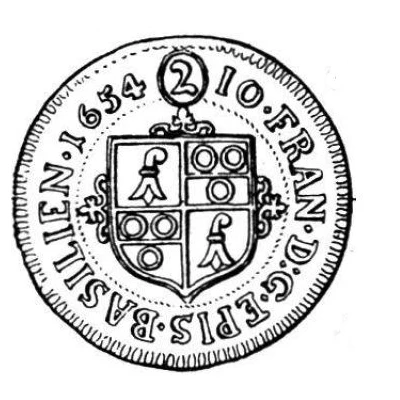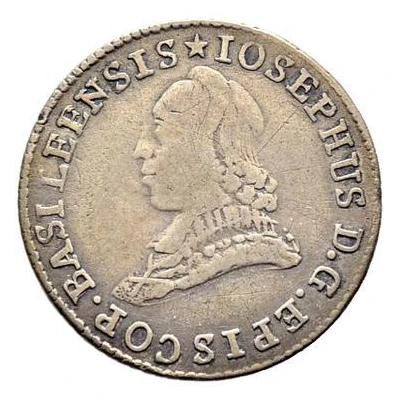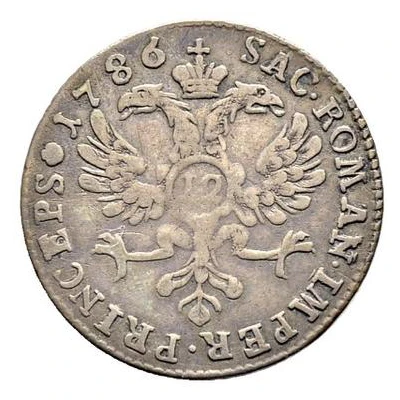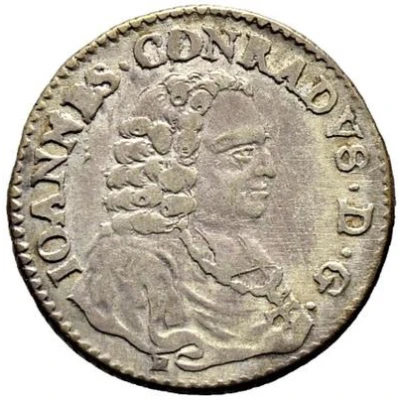
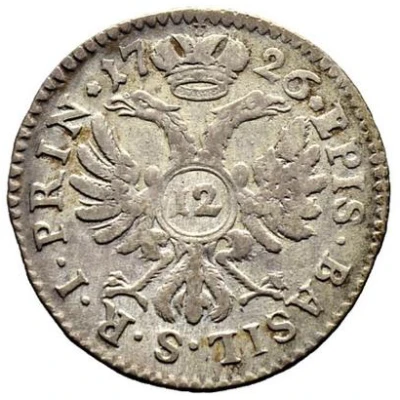

© Sincona AG
12 Kreuzer - Johann Konrad II von Reinach-Hirzbach
| Silver | 2.62 g | 22 mm |
| Issuer | Bishopric of Basel |
|---|---|
| Ruling authority | John Conrad of Reinach-Hirtzbach (Johann Konrad von Reinach-Hirtzbach) (1705-1737) |
| Type | Standard circulation coin |
| Years | 1725-1733 |
| Value | 12 Kreuzers (0.1) |
| Currency | Thaler (1575-1793) |
| Composition | Silver |
| Weight | 2.62 g |
| Diameter | 22 mm |
| Shape | Round |
| Orientation | Coin alignment ↑↓ |
| Demonetized | Yes |
| Updated | 2024-10-07 |
| Numista | N#106925 |
|---|---|
| Rarity index | 93% |
Reverse
Value on breast of double-headed eagle. Crown above divides date.
Script: Latin
Lettering:
*17 26* EPIS · BASIL· S · R · I · PRIN
12
Comment
The engraver, Johann Carl Hedlinger had previouslz worked in Sion with his teacher and mint master Hans Wilhelm Krauer, where he was probably allowed to cut the first dies. From 1711, Hedlinger Krauer moved to Lucerne, and then in 1716 to Pruntrut. It seems that Hedlinger cut many of the first stamps on behalf of his teacher until he quit his job with Wilhelm Krauer in July 1716 and went on a journey.From 1722-1727, Johann Carl Hedlinger's brother, Johann Joseph Anton, acted as mint master in Pruntrut, where Johann Carl visited him in 1726 and stayed for six weeks. Interestingly, the 12 and 6 cruiser pieces show a Privy Mark H, and they are attributed to the die cutter rather than the mint master.
Examples of varieties of this type:
• 1733 HMZ 2-145c (2.53g):
- no engraver's mark
© Image courtesy of Sincona AG
◦ Auctioned by SINCONA AG, Auction 53, 25 October 2018, Lot 6137. Sold for 425 CHF
Interesting fact
The 12 Kreuzer coin from the Bishopric of Basel, minted during the reign of Johann Konrad II von Reinach-Hirzbach (1725-1733), features an image of the bishop on one side and the Basel coat of arms on the other. What's interesting is that the coat of arms includes a depiction of a basilisk, a mythical creature said to have the power to kill with its gaze. This symbolism was likely chosen to represent the bishop's authority and protection.
